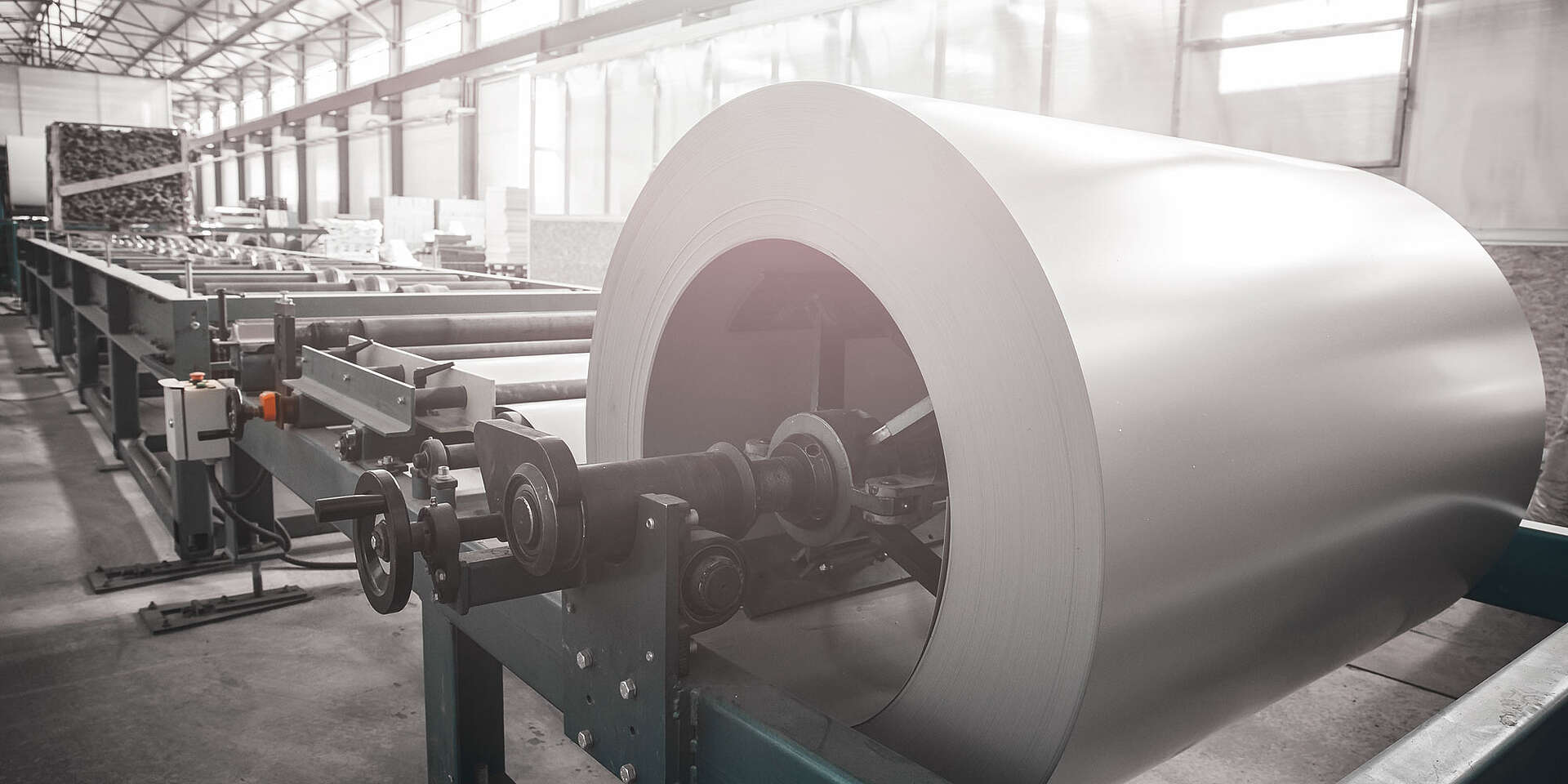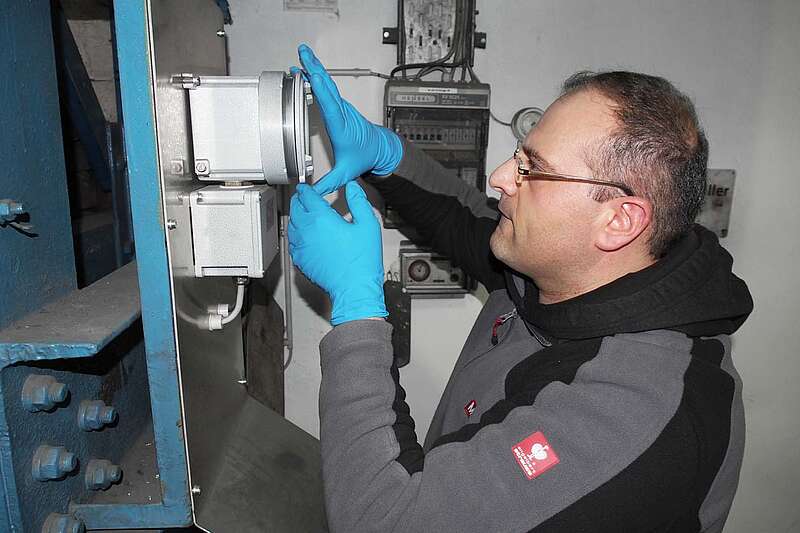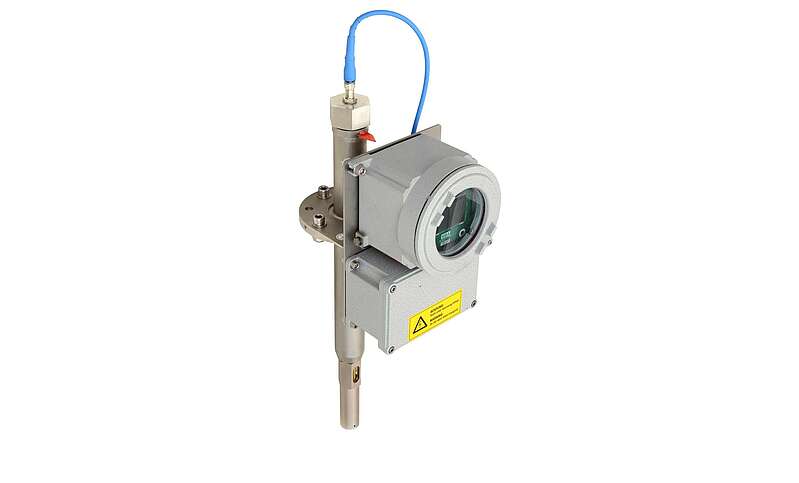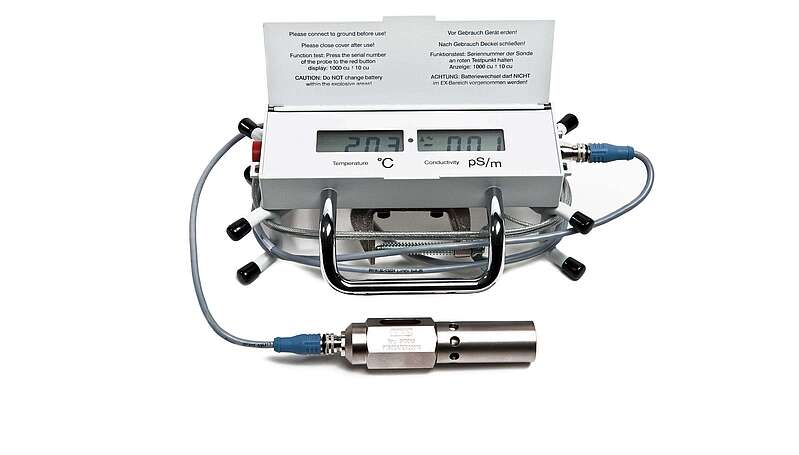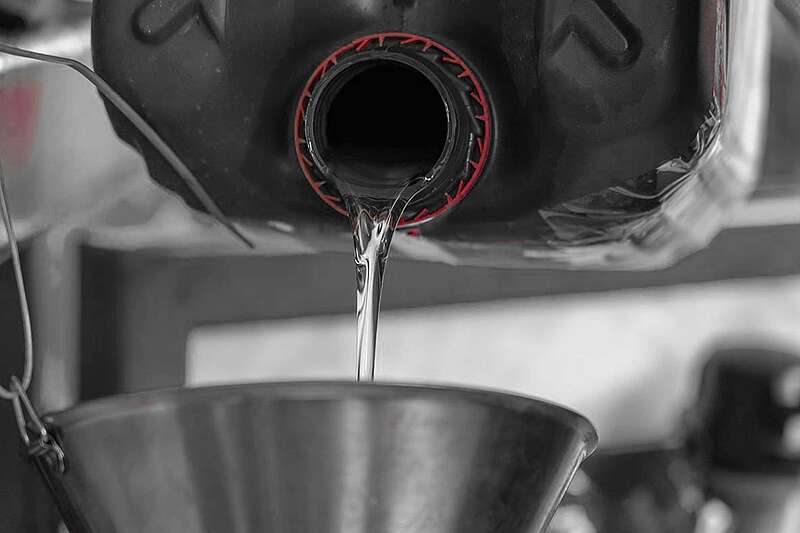Conductivity measurement
In metal production and processing, highly developed precision machines are used to precisely roll plates and sheets. These machines must be particularly wear-resistant in order to deliver results of consistent quality. Rolling oils are used for this purpose. Conductivity measurement of rolling oils is crucial to ensure quality and performance in metal production and processing. Rolling oils not only serve as a lubricant, but also provide a high level of wear protection that helps to extend the service life of rolling equipment.
The measuring devices are designed, certified and approved for conductivity measurements in light mineral oils such as rolling oil. Whether as manual or continuous inline measurement - the technology of our devices and systems in this field of application has proven itself in worldwide use for several decades.
We will find the right measuring solution for your application.
Principle of measurement
in rolling oils
The probe body used for conductivity measurements consists of a core electrode and a sheathed electrode at its end. Depending on the device version, the sheath electrode is provided with inlet and outlet holes of different sizes so that the oil to be measured can quickly pass between the two electrodes. A precisely regulated voltage is applied to the electrodes.
The rolling oil between the electrodes transports the electric current from one electrode to the other. A resistor is used for the basic calibration of the devices, as the conductivity value is physically the inverse of the resistance value.
The conductivity measuring instruments
You are looking for a proven combination of precision, experience, and versatility for a wide range of applications? The proven MLA900 and MLA1000 measuring instruments are specially designed for precise conductivity measurement in light mineral oils such as paraffin and rolling oil.
Together we will find the right solution for your measuring environment.
Continuous conductivity measurement in rolling oil
The measuring devices are designed, certified and approved for conductivity measurements in light mineral oils such as rolling oil. The technology of our continuous measuring devices has proven itself in this field of application worldwide for several decades.
Rolling oil in aluminium rolling mills
Mineral lubricating oils, which are made from naturally occurring petroleum or crude oil, are used to reduce friction between moving surfaces. High-quality rolling oils are necessary for achieving good surface qualities when rolling steel, aluminium, copper and brass. Cost savings and longer service lives are achieved by reducing rolling resistance and using high-quality anti-wear additives. This ensures optimum product quality during the hot rolling and cold rolling processes.
Lubricating oils are stored in storage and process tanks of various shapes and dimensions. The horizontal or vertical cylindrical tanks vary in both height (1 to 20 metres) and width (2 to 6 metres).
Filters are used in rolling mills to clean the oil, but this also contributes to a reduction in conductivity. Oil circulation systems are susceptible to electrostatic charging due to friction caused by the oil. If the electrical charge in an oil circulation system increases and eventually becomes too great, an electrostatic discharge takes place, which poses a potential explosion hazard with flammable liquids. Measuring the conductivity of the oil helps to prevent damage to the tank.
If the conductivity at 20 °C is more than 400 pS/m, the risk of system damage due to electrostatic charging and discharging is very low. If the conductivity of the oil is lower, the probability of electrical charge formation increases significantly. In this case, additives are added. The additives have an important influence on the conductivity of light oils. In general, the higher the proportion of organometallic additives, the higher the conductivity of the lubricant.
When handling petroleum products with low electrical conductivity, such as paraffin, high electrostatic charging can occur. To prevent the risk of ignition or explosion when discharged by sparks, the conductivity must be increased by additives. Reliable conductivity measurement is therefore necessary. Conductivity meters are a crucial part of our efforts to ensure safety and efficiency in the handling of petroleum products.
Light mineral oils, e.g. paraffin or solvents, usually travel through pipelines on their way from the refinery via tank storage facilities to their final destination. As mineral oils such as these have low conductivity, the risk of electrostatic charging is very high. This can result in material damage to the pipelines and, in the worst case, there is a risk of explosions. A functioning and reliable conductivity monitoring system is correspondingly important.
Solvents and paints have low conductivity, so the risk of electrostatic charging is very high. This can result in material damage to the pipes and, in the worst case, there is a risk of explosions. Accurate and reliable conductivity measurement is therefore essential. At MBA, we understand the essential role of conductivity measurement in the handling of light mineral oils, including solvents and paints. We offer solutions that ensure the safety and efficiency of your processes.
